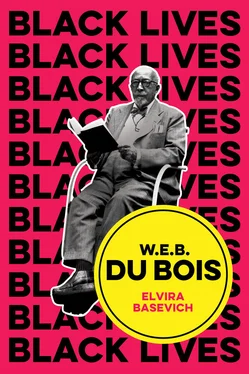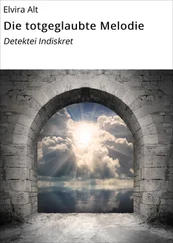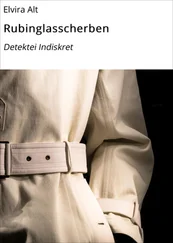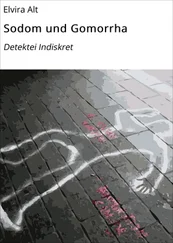In his elegant defense of moral faith in the light of loss, Melvin Rogers notes: “The quest to transform the political landscape indicates that the legitimacy of democracy demands faith that sacrifice will be redeemed. Here the word ‘redeem’ indicates the possibility of mending wounds at the heart of the community, the end result of which is to include those who have otherwise been excluded from political life.” 34Likewise, Du Bois defined the power and limit of his faith in democracy: the moral redemption of the republic demands ongoing engagement with the history of black, Latinx, and indigenous losses. Though he had faith that it is possible to heal the wound racism has left on the republic, he knew white Americans would need to cross an uncharted “spiritual” territory to learn to atone for centuries of violence, a political gesture that has never been offered. The polity has not yet learned to mourn the dead. It has not even learned to be troubled by its direct role in the killings.
In the Jewish tradition, after a burial one observes seven days of mourning. The practice is called “sitting shiva .” Mourners cover all the mirrors in their house and sit on low stools to show their humility before the dead. Unlike sitting shiva , there is no clear procedure in a constitutional republic of how to mourn or when to begin. Though the republic will never finish mourning the lives lost to racial violence, it is necessary and possible to begin the process of mourning. We must begin, as ever, with the conviction that black lives matter .
Every year on Martin Luther King Day, militia groups descend on Richmond, Virginia to protest gun-control legislation. That event organizers choose to hold their gun rights rally on a federal holiday that honors King suggests two things. First, the power of the Black Lives Matter movement remains its forceful assertion of the right of blacks to exist. Second, the forceful assertion of the right of blacks to exist is taken as a threat not just to the law enforcement community but to a fragile whiteness invested in the preservation of the color line. Their fear and insecurity betray them. The overwhelmingly white (and mostly male) militiamen nurse an elemental dread of black being-in-the-world. In the judgment of Du Bois’s John Jones, the men who hold the noose remain “pitiful.” And yet the losses they continue to inflict are incalculable, rendering precarious the day-to-day existence of communities of color. Born to former slaves, the poet Paul Dunbar reflects on what it is like to live a life to which one is made to feel unentitled. He notes that it feels like paying a debt: “This is the debt I pay just for one riotous day, / years of regret and grief, sorrow without relief / […] / Slight was the thing I bought, small was the debt I thought, / poor was the loan at best – God! but the interest!” 35
1 1. K. A. Appiah, Lines of Descent, New York: Norton, 2014, p. 21.
2 2. W. E. B. Du Bois, The Souls of Black Folk, New York: Penguin, 1989, p. 3.
3 3. Hannah Arendt, Eichmann in Jerusalem, New York: Penguin, 2006, p. 273.
4 4. The transcript of Zimmerman’s 911 call is available online.
5 5. Resnick Gideon, “Zimmerman Taunts Trayvon Martin’s Parents,” The Daily Beast, April 13, 2017, online.
6 6. Du Bois, Souls, p. 166.
7 7. Du Bois, Souls, p. 193. See also W. E. B. Du Bois, Darkwater: Voices from Within the Veil, Mineola: Dover, 1999, p. 29.
8 8. W. E. B. Du Bois, Dusk of Dawn: An Essay Toward an Autobiography of a Race Concept, New York: The Library of America, 1986, p. 75.
9 9. Du Bois, Dusk of Dawn, p. 34.
10 10. Cf. James Baldwin, The Cross of Redemption: Uncollected Writings, New York: Pantheon Books, 2010.
11 11. Ramsey Orta, a friend of Garner’s who recorded his murder on his cellphone, is the only person at the scene that day to have faced jail time. The journalist Chloe Cooper Jones writes: “‘Someone will have to pay for this,’ Orta thought, looking at his phone, not realizing that someone would be him.” See Chloe Cooper Jones, “Fearing for His Life,” The Verge, March 13, 2019, online.
12 12. Amy Goodman, Democracy Now! Independent Global News, August 20, 2019, online.
13 13. Interview Democracy Now, online: https://www.democracynow.org/2019/8/20/emerald_garner_daniel_pantaleo_nypd_firing
14 14. Christopher Berg, “About Blue Lives Matter,” Blue Lives Matter, May 14, 2017, online.
15 15. Natasha Lennard, “Call Congress’s ‘Blue Lives Matter’ Bills What They Are: Another Attack on Black Lives,” The Intercept, May 18, 2018, online.
16 16. Du Bois, Souls, p. 3.
17 17. Du Bois, Souls, p. 3.
18 18. Du Bois, Souls, p. 5.
19 19. Du Bois, Souls, p. 5.
20 20. Du Bois, Souls, p. 5.
21 21. Du Bois, Souls, p. 5.
22 22. Paul C. Taylor, “W. E. B. Du Bois,” Philosophy Compass 5(11) (2010): 904–15, 912.
23 23. Du Bois, Darkwater, pp. 131–2.
24 24. Du Bois, Souls, p. 5.
25 25. W. E. B. Du Bois, Black Reconstruction in America, 1860–1880, New York: The Free Press, 1992, pp. 325–79; David R. Roediger, The Wages of Whiteness, New York: Verso, 2007.
26 26. Du Bois, Souls, p. 8.
27 27. Linda Alcoff, Visible Identities: Race, Gender, and the Self, New York: Oxford University Press, 2006, pp. 248–9.
28 28. Du Bois, Souls, p. 172; W. E. B. Du Bois, The Autobiography of W. E. B. Du Bois, New York: Oxford University Press, 2007, p. 281.
29 29. Du Bois, Souls, p. 173.
30 30. Alcoff, Visible Identities, pp. 205–8.
31 31. Baldwin, The Cross of Redemption, p. 48.
32 32. Keeanga-Yamahtta Taylor, From #BlackLivesMatter to Black Liberation, Chicago: Haymarket Books, 2016, p. 154.
33 33. Keeanga-Yamahtta Taylor, From #BlackLivesMatter to Black Liberation, p. 154.
34 34. Melvin L. Rogers, “The Fact of Sacrifice and Necessity of Faith: Dewey and the Ethics of Democracy,” Transactions of the Charles Pierce Society 47(3) (2011): 274–300, 275.
35 35. Paul Laurence Dunbar, “The Debt,” The Poetry Foundation, online.
Конец ознакомительного фрагмента.
Текст предоставлен ООО «ЛитРес».
Прочитайте эту книгу целиком, на ЛитРес.
Безопасно оплатить книгу можно банковской картой Visa, MasterCard, Maestro, со счета мобильного телефона, с платежного терминала, в салоне МТС или Связной, через PayPal, WebMoney, Яндекс.Деньги, QIWI Кошелек, бонусными картами или другим удобным Вам способом.












